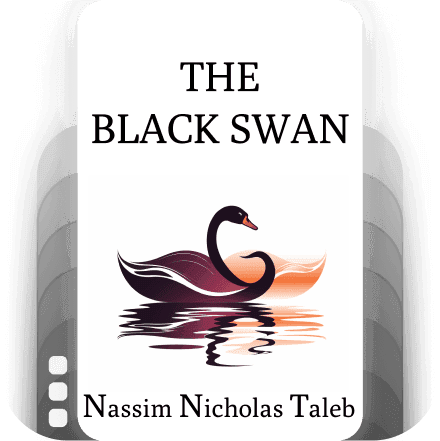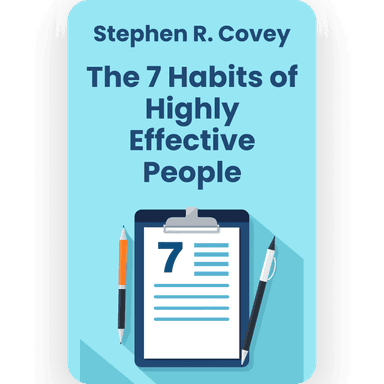
The Black Swan
Nassim Nicholas Taleb
4.8 - 5 ratings
10
List Points
10
Chapters
5
Topics
Description
Nassim Nicholas Taleb's work explores the profound impact of rare, unpredictable events, termed Black Swans, on our world. These events, often dismissed as outliers, hold enormous consequences and are retrospectively rationalized, despite their unforeseen nature. Taleb argues that our inability to predict these events stems from the limitations of traditional forecasting methods and human cognitive biases. By highlighting the significance of uncertainty, the book encourages readers to be more aware of the inherent unpredictability of the world and to rethink how they approach risk and decision-making in complex systems.
What will you learn?
In this insightful work by Nassim Nicholas Taleb, readers will learn to understand and anticipate the profound impact of rare, unpredictable, and high-impact events, known as Black Swans, which traditional forecasting methods often overlook. The book challenges the reliance on prediction models and emphasizes the importance of acknowledging uncertainty in various domains, including finance, politics, and personal decision-making. Through engaging anecdotes and rigorous analysis, readers will gain tools to better navigate life's complexities, enhance their resilience, and capitalize on unexpected opportunities by fostering a mindset that embraces the unpredictable.
Who’s it for?
• Risk managers and financial analysts
• Policy makers and political strategists
• Business leaders and entrepreneurs
• Academics and students of economics, finance, and philosophy
• Curious individuals interested in the impact of unpredictable events
Categories
Key Learning
Available chapters to listen for this topic- 1
The Impact of the Highly Improbable
Understanding how rare and unpredictable events, known as Black Swans, have a disproportionately large impact on our world compared to regular occurrences. - 2
Asymmetric Knowledge
Exploring the limitations of our knowledge and the biases that prevent us from accurately predicting and understanding extreme events or outliers. - 3
The Limits of Forecasting
Delving into why traditional forecasting methods often fail to account for Black Swans, and how overconfidence in predictions can lead to disastrous consequences. - 4
The Narrative Fallacy
Examining our tendency to create simplified and coherent stories from random and complex data, which can obscure the true causes of events. - 5
Mediocristan vs. Extremistan
Distinguishing between environments where averages are meaningful (Mediocristan) and those dominated by extreme variations (Extremistan), and understanding their implications. - 6
The Ludic Fallacy
Critiquing the mistake of oversimplifying the world's uncertainty by modeling it after games and artificial constructs, ignoring the messiness of real-world randomness. - 7
The Scandal of Prediction
Highlighting the flaws in relying on experts and models to foresee rare events, and the dangers of succumbing to the illusion of predictability. - 8
Embracing Uncertainty
Strategies and mindsets for thriving in a world dominated by Black Swans, including robustness and antifragility, which go beyond mere resilience. - 9
The Silent Evidence Problem
Understanding the importance of accounting for invisible or ignored data when analyzing past events to avoid skewed interpretations and learning appropriately. - 10
The Importance of Serendipity
Encouraging openness to unexpected discoveries and opportunities, and recognizing that many significant advancements and ideas come from chance encounters and unplanned events.
























